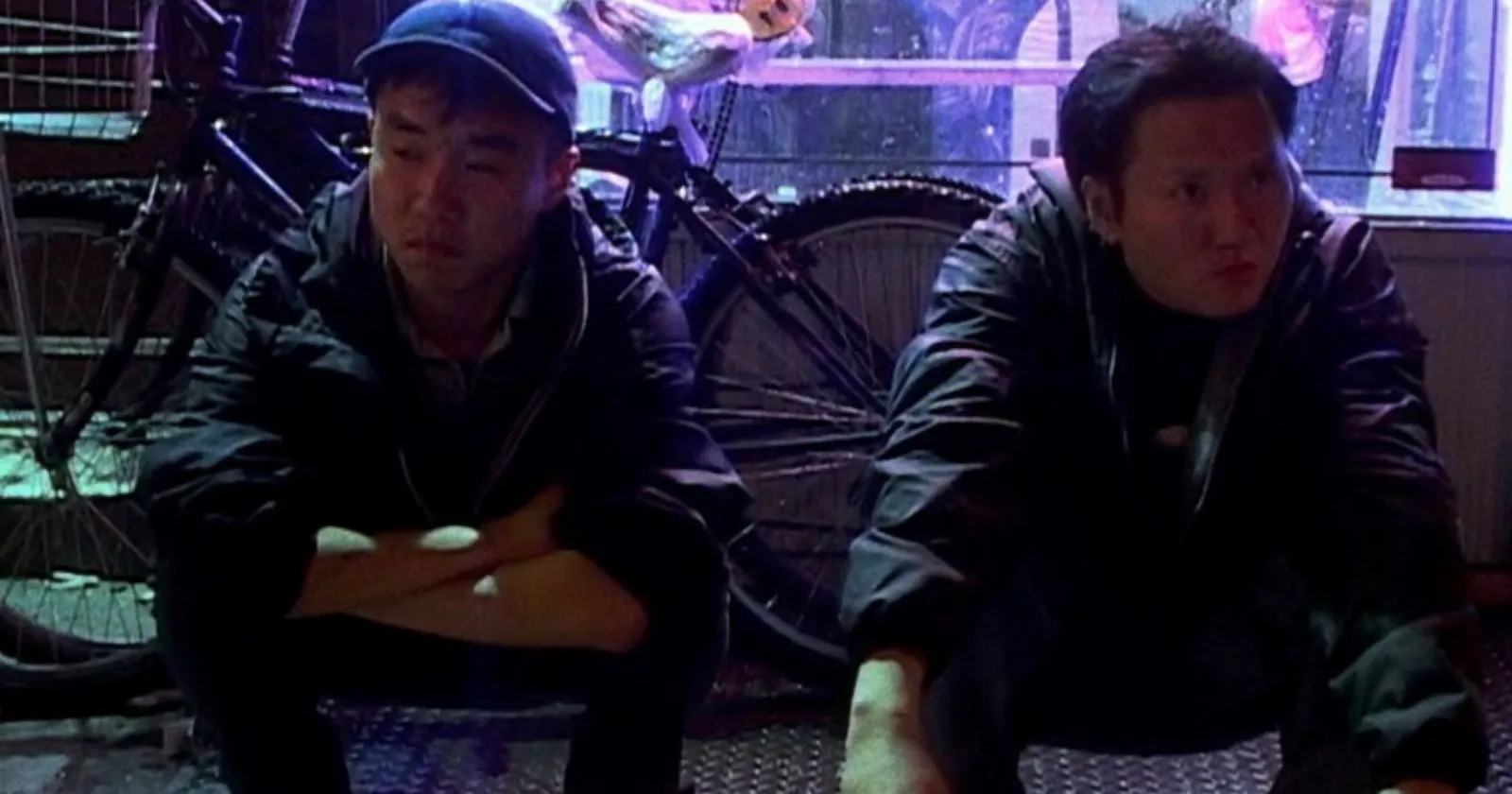Sean Baker’s Take Out (2004), his feature directorial debut, is an unvarnished and quietly devastating slice-of-life film that showcases the talents of a filmmaker already adept at immersing his audience into the lives of his characters. Co-directed with Shih-Ching Tsou, Take Out serves as a foundation for the themes and styles Baker would refine in later works like The Florida Project and Red Rocket. With its minimalist plot and deeply empathetic perspective, the movie reveals a raw and intimate portrait of the struggles faced by those living on the margins of society.

The film centers on Ming Ding (Charles Jang), a Chinese immigrant working as a delivery driver in Manhattan. Over the course of a single day, Ming must scrape together $800 to pay off a debt to smugglers who brought him across the border. What unfolds is a tense and deeply personal journey as Ming navigates a demanding and often indifferent world, delivering takeout food to customers who represent a microcosm of urban life.
Baker’s approach is unrelentingly immersive. The handheld, cinéma vérité style captures the gritty vibrancy of New York City and allows the audience to see the world almost entirely through Ming’s perspective. This observational lens emphasizes the physical and emotional toll of his work, as Ming’s quiet resilience contrasts with the chaotic, often transactional nature of his environment. The city is not just a backdrop; it’s an antagonist, presenting challenges at every turn, from language barriers to cultural prejudices.
Charles Jang’s performance as Ming is the heart of the movie. His understated physicality conveys a range of emotions—hope, frustration, desperation—without the need for elaborate dialogue. Because Ming speaks little English, Jang relies on subtle expressions and body language to communicate his inner turmoil. It’s a performance that feels both natural and deeply affecting, grounding the film in authenticity and making Ming’s journey one you can’t help but root for.
The film’s climax is a gut punch of realism. After a long day of relentless effort, Ming is robbed at gunpoint in an elevator, losing the money he worked tirelessly to earn. This heartbreaking moment underscores the precariousness of Ming’s situation and the broader systemic forces that keep people like him trapped in cycles of exploitation. It’s a devastating reminder of how little control some have over their circumstances, even when they act in good faith and work hard.
Despite its sparse narrative, Take Out carries significant emotional weight. Baker and Tsou craft a story that speaks to the broader immigrant experience without veering into melodrama. They depict the quiet dignity and resilience of their protagonist while exposing the casual cruelties of a society that often views individuals like Ming as invisible.
The technical elements of Take Out reflect its scrappy, independent production. Shot on a microbudget, the film’s handheld camerawork and natural lighting give it a documentary-like immediacy. While this raw aesthetic might feel rough around the edges, it serves the story’s grounded and unpolished tone perfectly.
Take Out is not without its flaws—its pacing can feel uneven, and the movie’s observational style may not resonate with viewers who prefer more dynamic storytelling. But these are minor quibbles in the context of a debut that accomplishes so much with so little. Baker’s ability to humanize his characters and draw attention to the systemic inequities they face is a hallmark of his career, and it’s evident even in this early effort.
With Take Out, Sean Baker establishes himself as a filmmaker deeply attuned to the lives of those on the fringes of society. It’s a deeply empathetic and quietly powerful film that, while not as polished as his later works, serves as a compelling introduction to his unique voice.
Score: 7/10
Take Out (2004)
- Cast: Charles Jang, Karren Karagulian
- Director: Sean Baker, Shih-Ching Tsou
- Genre: Drama
- Runtime: 88 minutes
- Rated: R
- Release Date: January 18, 2004
Read More Reviews for Sean Baker Movies
Cinephile Corner has reviewed the following Sean Baker movies: